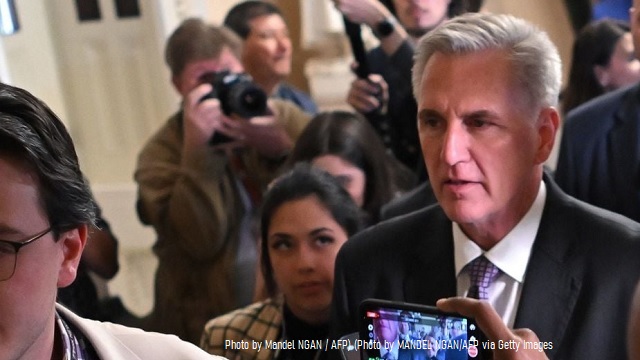Here Are The 17 GOP Senators Who Voted For Unlimited Spending

The U.S. Senate passed legislation late Thursday night to raise the nation’s debt ceiling, and the bill is now headed to President Joe Biden’s desk.
The legislation passed with 17 Republicans joining 46 Democrats to suspend the debt ceiling until Jan. 2025. Five Democrats broke with their party. Ahead of the June 5 deadline, the federal government will now avoid a default on its debt.
Here Are The 17 Republicans Who Voted For Unlimited Spending:
- Arkansas Sen. John Boozman
- West Virginia Sen. Shelley Moore Capito
- Maine Sen. Susan Collins
- Texas Sen. John Cornyn
- North Dakota Sen. Kevin Cramer
- Iowa Sen. Joni Ernst
- Iowa Sen. Chuck Grassley
- North Dakota Sen. John Hoeven
- Kansas Sen. Jerry Moran
- Kentucky Sen. Mitch McConnell
- Alaska Sen. Lisa Murkowski
- Oklahoma Sen. Markwayne Mullin
- Utah Sen. Mitt Romney
- South Dakota Sen. Mike Rounds
- South Dakota Sen. John Thune
- North Carolina Sen. Thom Tillis
- Indiana Sen. Todd Young
After passing the legislation, Republicans such as Senate Minority Leader Mitch McConnell, who supported the bill, released statements detailing why they voted in favor of the legislation.
“Four months after Speaker McCarthy invited President Biden to begin negotiating a resolution to the looming debt crisis, an important step toward fiscal sanity will finally become law. Thanks to House Republicans’ efforts, the Fiscal Responsibility Act avoids the catastrophic consequences of default and begins to curb Washington Democrats’ addiction to reckless spending that grows our nation’s debt.”
On the Senate floor, Sen. Cornyn said, “This bill will reduce federal spending by $1.5 trillion over the next decade, which is a strong start in the fight to right America’s financial ship.”
However, Republicans who voted against raising the nation’s debt ceiling, such as Missouri Sen. Josh Hawley and Texas Sen. Ted Cruz had different tones.
“On the debt ceiling, my view is the most important deficit we face is the trade deficit with China. Every dollar represents jobs lost (60k & counting in Missouri), industry lost, communities decimated. We’ve got to quit making China rich & get good blue-collar jobs back in USA. This deal doesn’t do that. So I’m a no,” Hawley, who voted against the legislation, said in a statement Thursday.
Cruz said: “While there were some good elements to this deal, such as reclaiming some unspent Covid-19 funds, there were a lot of elements that were disappointing. I’m upset this agreement did not cut more, and I’m frustrated this agreement adds a lot to the debt in exchange for relatively few spending cuts.”
AUTHOR
HENRY RODGERS
Chief national correspondent.
RELATED ARTICLES:
Here Are The Senators Who Voted Against Bill To Raise Debt Ceiling
Can Trump Win A General? The One Thing The Media Is Ignoring
EDITORS NOTE: This Daily Caller column is republished with permission. ©All rights reserved.





